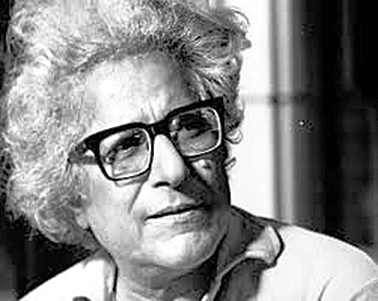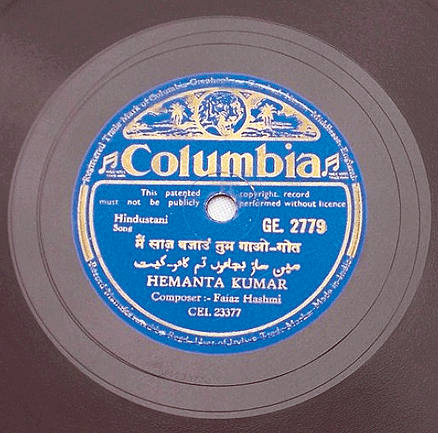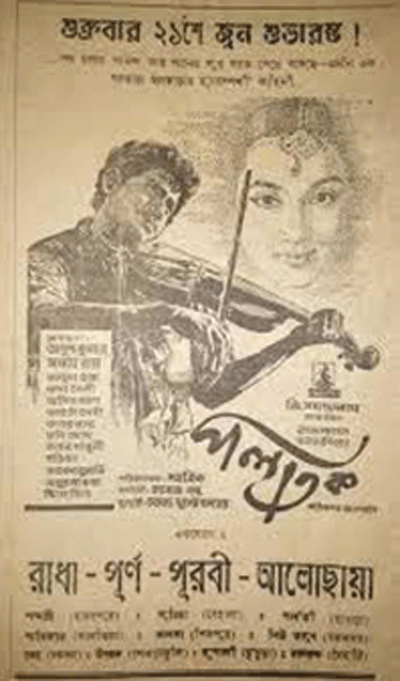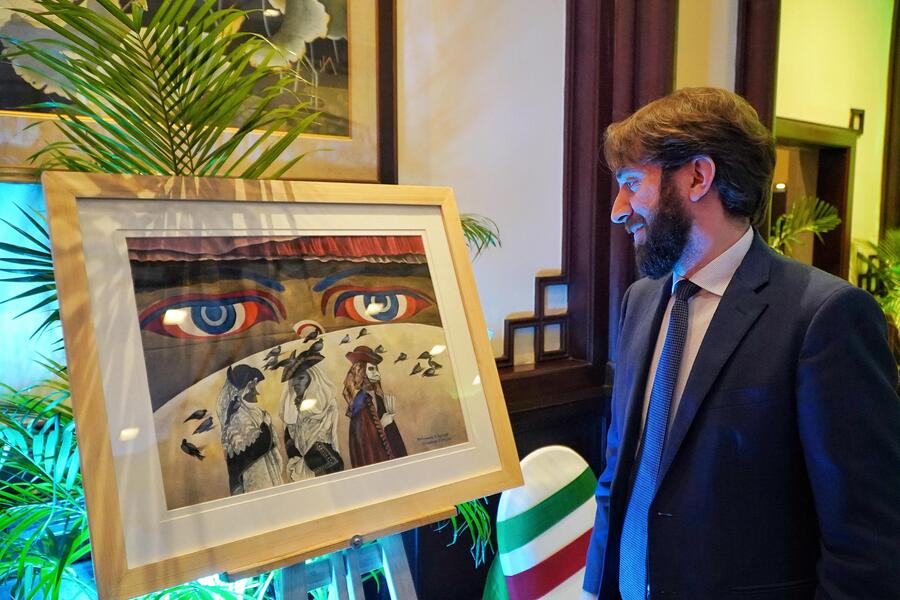 Thursday, 09 January 2025
Thursday, 09 January 2025
 Thursday, 09 January 2025
Thursday, 09 January 2025
The song starts with a female voice asking Tarpor? or ‘what’s next?’. The voice belongs to Chand Usmani who won the Filmfare award for Best Supporting Actress for the film Pehchan. In her short story Standayini, Mahasweta Devi writes: Jashoda is fully an Indian woman, whose unreasonable, unreasoning and unintelligent devotion to her husband and love for her children, whose unnatural renunciation and forgiveness, have been kept alive in the popular consciousness by all Indian women from Sati-Savitri-Sita through Nirupa Roy and Chand Usmani.
Hemant Bhosle, the late son of Asha Bhosle.
3. When Mahishashur Mardini was being re-composed for AIR, Uttam Kumar was not agreeing to lend his voice to something which was already so vastly popular and revered. It took two persons to convince Uttam Kumar to do the recitation and replace Birendra Krishna Bhadra. One was Hemanta Mukherjee. Who was the other person?
Music director Ashima Mukhopadhyay famous for her composition Boro Eka Lagey in Chowrongi.

4. When this eminent poet was struggling financially, Hemanta Mukherjee got his school friend an office room on rent and urged him to publish a new literary magazine from that office. He also gifted him a separate room as the editor’s room. However, the poet neither ever used that office space, nor publish any magazine from there. But Hemanta Mukherjee did not mind. He knew that the poet was destined for something bigger. Who was this poet?
Sourced by the TelegraphSahitya Academy and Jnanpith Award winner Subhash Mukhopadhyay.
The song E jodi aakash hoy starts with a female voice asking ‘Ei ki aakash? Ei ki sagor?’ The voice belongs to Rakhee Gulzar. Rakhee Gulzar was born on India’s Independence Day in Ranaghat, West Bengal. She played the Bengali version of Miss Marple in her last on-screen appearance in Rituporno Ghosh’s Shubho Mohorot. Shubho Mohorot was a Bengali adaptation of Agatha Christie’s detective novel The Mirror Crack’d from Side to Side.

6. Hemanta Mukherjee narrated a funny story where in a certain year he visited several popular personalities in Calcutta with some ‘thing’ in his hand wrapped in a brown paper. He admitted that it was his promotional strategy for the ‘thing’. However, he needed an excuse to visit the prominent figures. His excuse was the summer heat and to all those hosts he told the same story, ‘I was just passing by. The heat is simply draining. Can I have a glass of water please?’ and then he would place that ‘thing’ on the table to catch the attention of the famous hosts. By the time he was sitting with his last host, he was already a walking water tank. However, not even a single soul asked anything about that ‘thing’. What was that ‘thing’?
Sourced by the TelegraphHis first record produced by Columbia Records which had two of his songs.
Door Gagan Ki Chhaon Mein was Kishore Kumar’s debut as a director and Hemanta lent his voice to the title song. Anindita was the first and only Bengali movie directed by Hemanta, and Kishore Kumar lent his voice to the popular number Ogo Nirupama.

8. One of the most famous renditions of Hemanta Mukherjee is Jibonpurer pothik re bhai. Mukul Dutt, whose talent was discovered by Hemanta and Kishore Kumar, wrote the song. What was that single word in the song that defined the entire theme of the song and the lead character of this film so beautifully?
Sourced by the TelegraphThe lyrics were highly appreciated for the use of that single word and the word was also there in the original story by Manoj Basu. The word was quite commonly used in legal documents in Bengal during the 19th century too. Sakin, which is a word used by Bedouins and means home, habitat or address. The lead character in the movie was a person who was an eternal traveller and had no home as such.
Sukh Namey Suk Pakhi in Dushtu Projapoti released in 1967. It was the last of the four Bengali films graced by Kishore Kumar.
Guess the Hemanta song
Which songs sung and/or composed by Hemanta Mukherjee can you connect to these unrelated film stills?
Conrad Rooks was the director of the English movie Siddhartha (1972). This is the only English movie whose music was composed by Hemant Kumar.
Till a certain point in time, Hemanta Mukherjee was the chosen voice of Uttam Kumar. The two voices sounded so similar that it was difficult to distinguish the two when they were heard together on screen. However, in the 1959 movie Goli Theke Rajpath, Sudhin Dasgupta experimented with Manna Dey as the voice of Mahanayak. The song Lag lag lag velkir khela was an instant hit, but it took seven more years before the movie Shankhabela established Manna Dey as the preferred singing voice of Uttam Kumar, replacing Hemanta Mukherjee.
In Nagin (1954), his then assistant Kalyanji Virji Shah, of Kalyanji-Anandji fame played the Clavioline, which was a prototype of today’s synthesizer, to bring out sound of the been (musical instrument used to charm snakes) in the song Tan dole mera man dole. The improvisation became hugely popular and Kalyanji became a much in demand Clavioline player.
Composer Santosh Sengupta with Hemant Kumar and Geeta Dutt, rehearsing Tagore songs to be released for the Tagore centenary year in 1961.
The first ever song which Kishore Kumar sang for Uttam Kumar was for the film Sabarmati in 1969. The music was composed by Gopen Mullick. Hemanta Mukherjee shared with Kishore Kumar his playback experience with Uttam Kumar to help the later fit into the voice of the Mahanayak. He is seen here with Ila Bosu, director Hiren Nag, Kishore Kumar, Gouriprasanna Majumdar, music director Gopen Mallick at the recording of the duet song Tak dhin dhin ta.
Amal Mukherjee, brother of Hemanta Mukherjee, was also a reputed singer of Bengali modern songs. Hospital (poster above) and Abak Prithibi were the two most notable films of Amal Mukherjee as music composer. But his claim to fame was his nursery rhyme Chup Chup Lokkhiti.
When Hemanta Mukherjee was 17, his short story Ekti Din was published in Desh. However, destiny took Hemanta away from literature and to the world of music. We can’t complain!







